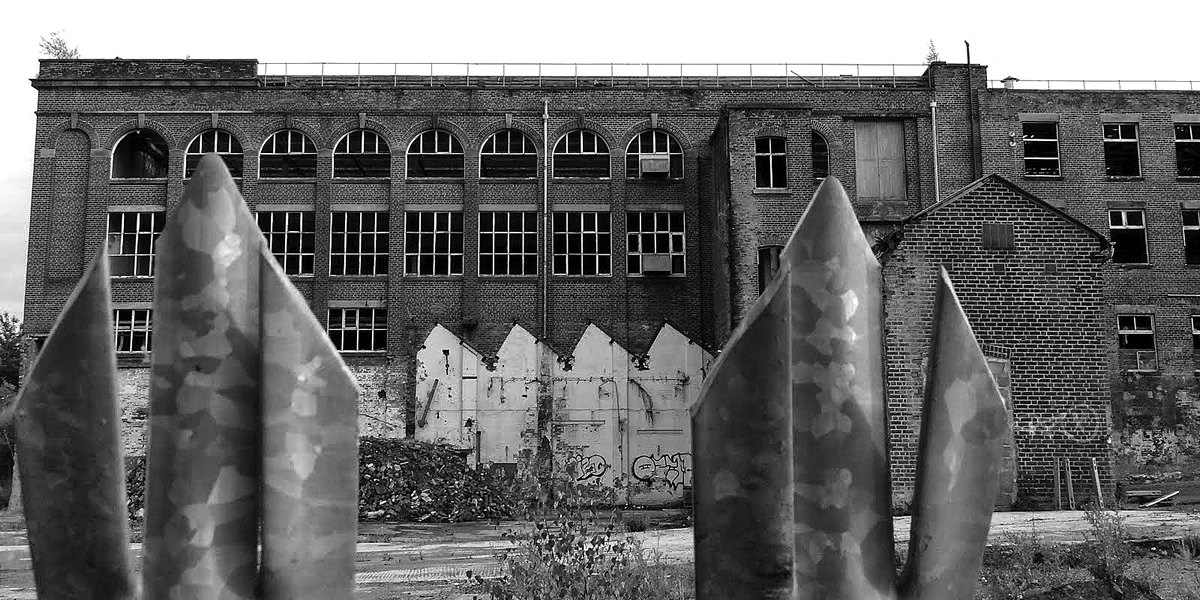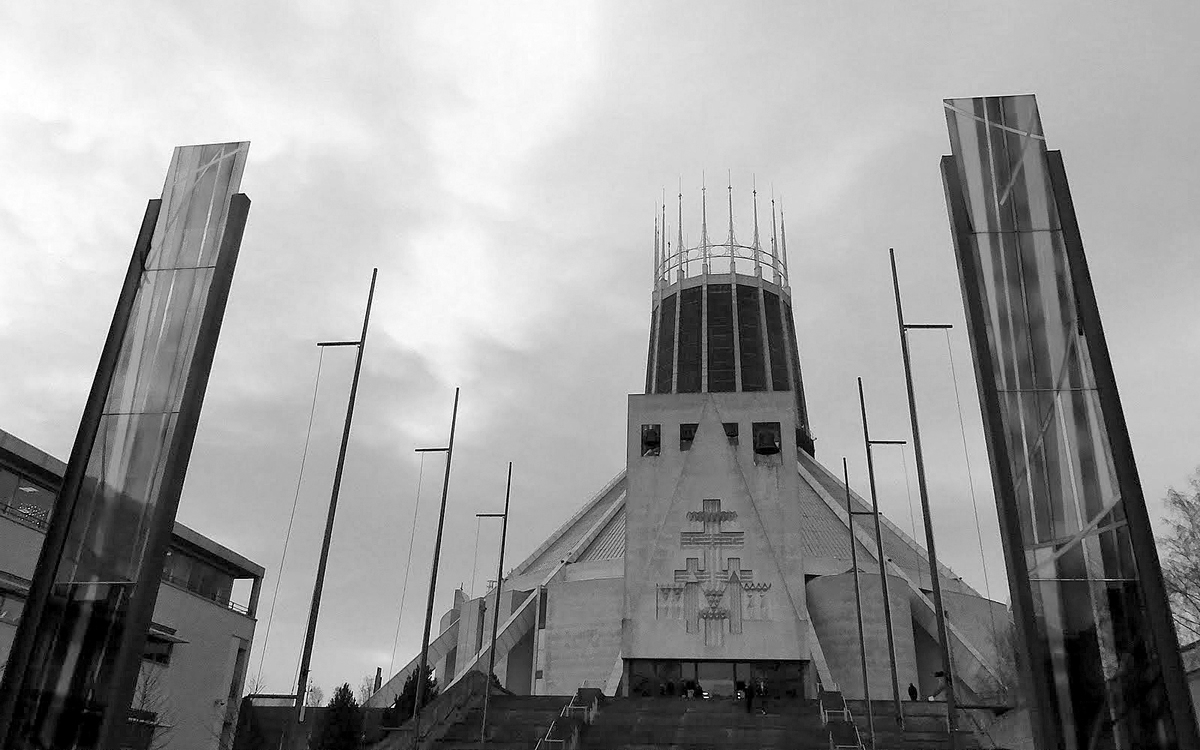Religion, Urban Change, and the Environment
Our research contributes towards progressive, practical changes in church and faith communities, public policy and academia. Following the visionary thinking and social concerns of Archbishop William Temple, our research promotes economic, social and political wellbeing.
Introduction
The Foundation has long recognised the close relationship between urban change (brought about through globalisation and gentrification), acute environmental challenge, the rise of the postdigital and the new public resurgence of religion and interest in theology. We continue to research the challenges and opportunities for religion and belief to create just, flourishing and sustainable urban, postdigital and ecological environments, in partnership with other actors and agencies.
Temple Tracts
John Reader (2022) The Digital and the Environmental: Disinhibition, Disincarnation, and Deceleration (William Temple Foundation)
Hilary Russell (2022) Whose Story Are We Telling? Reflections on Urban Ministry Over Four Decades (William Temple Foundation)
Jenny Richardson (2022) Just Learning with the Urban Church (William Temple Foundation)
Israel Olofinjana (2022) The Legacy of Daniels Ekarte: Implications for the Urban and Public Mission of African Churches in the UK (William Temple Foundation)
Sally Mann (2022) Remainer Reflections: Following Jesus of Nazareth, not Jesus of Sepphoris (William Temple Foundation)
Paul Keeble (2021) Going the Distance: 25 Years of Urban Presence (William Temple Foundation)
Richard Douglas (2021) Theodicy and the Anthropocene (William Temple Foundation)
John Daniels (2021) Stories about Bodies: Complexity Theory, Energy and the Emergence of Ethics (William Temple Foundation)
John Reader (2020) Stiegler on Technology (William Temple Foundation)
Tim Middleton (2020) Sloterdijk on Ecology (William Temple Foundation)
John Reader and Adrian Evans (2019) Ethics after New Materialism: A Modest Undertaking (William Temple Foundation)
Maggi Savin-Baden and John Reader (2018) Technology Transforming Theology: Digital Impacts (William Temple Foundation)
Reader, J (2017) A Tour Around Latour (William Temple Foundation)
Books
Baker C. (2007) The Hybrid Church in the City – Third Space Thinking (Farnham: Ashgate).
The Hybrid Church in the City – Third Space Thinking 2nd edition (2009) (London: SCM/Canterbury Press.
Green, L. and C. Baker (eds) (2008) Building Utopia? – seeking the authentic church for the new communities (London: SPCK)
Beaumont, J and C. Baker (eds.) (2011), Postsecular Cities – space, theory and praxis, 290 pages, London and New York: Continuum.
Cloke, P., Baker, C., Sutherland, C and Williams A. (2019) Postsecular Geographies: Re-envisioning politics, subjectivity and ethics New York and London: Routledge.
Christopher Baker, Beth R. Crisp and Adam Dinham (eds.) (2018) Re-imagining Religion and Belief for 21st Century Policy and Practice Bristol: Policy Press.
Parts or Chapters of books
Atherton, J., C. Baker., and E. Graham (2005) ‘A “Genius of Place”? Manchester as a Case Study in Public Theology’, eds. E.Graham and A.Rowlands, Pathways to the Public, Munster: Lit Verlag.
Baker, C. (2008) ‘Contemporary renewal in the centre of the city’, ed. P. Ballard, The Church at the Centre of the City, (Peterborough: Epworth).
Baker C. and Beaumont, J. (2011), ‘Postcolonialism and Religion: New Spaces of Belonging and Becoming in the Postsecular City’, eds. J.Beaumont and C.Baker, Postsecular Cities – space, theory and practice, (London and New York: Continuum).
Baker, C. and Beaumont, J. (2011) ‘Introduction’, eds. J.Beaumont and C.Baker, Postsecular Cities – space, theory and practice, (London and New York: Continuum).
Baker, C. and Beaumont, J (2011) ‘Afterword’, eds. J.Beaumont and C.Baker, Postsecular Cities – space, theory and practice (London and New York: Continuum).
Baker, C. (2013) ‘The contagion of the sacred and the right to the city: modalities of belonging, becoming and participation amongst diasporic religious communities, and the growth of the postsecular city’, eds. J.Garnett and A.Harris, Rescripting Religion in the City: Migration and Religious Identity in the Modern Metropolis, (Farnham: Ashgate).
Baker, C. (2017) ‘Religion as ‘urban white noise’ – material practices of everyday religion at the ‘unquiet frontiers’ of the global hyper-diverse city’, in Religion and the Global City, eds David Garbin and Anna Strhan, London: Bloomsbury.
Baker, C. and Elaine Graham (2017) ‘Urban Ecology and Faith Communities’ in Brill Companion to Public Theology, Sebastian Kim and Katie Day (eds).
Baker, C (2017) ‘Responsible Citizenship after Rawls’ in Austerity, Community Action and the Future of Citizenship Policy Press, eds. Shana Cohen, Jan-Jonathan Bock and Christina Fuhr, Bristol: Policy Press.
Baker, C (2018) ‘Postsecularity and a New Urban Politics – Spaces, Places and Imaginaries’ in Religious Pluralism and the City Helmut Berking, Jochen Schwenk and Silke Steets, London, Bloomsbury.
Baker, C. (2019) ‘Resisting the transcendent?’ in Beaumont, J. (ed.) The Routledge Handbook of the Postsecular, London and New York: Routledge, pp 303-314.
Baker, C. (2019) ‘The Postsecular City – site of emancipation or false dawn? In Greed, C. (ed.) Gender and Religion in the City – Women, Urban Planning and Spirituality. London and New York: Routledge, pp 16-30.
Journal Papers
Baker, C. (2005) ‘Religious faith in the ex-urban community – a case study of Christian faith-communities in Milton Keynes’, City 9, (1): 109-124.
Baker, C. (2016) ‘Sustainable governance in a postsecular public sphere: re-assessing the role of religion as a cosmopolitan policy actor in a diverse and globalised age’, Sustainable Development 24, 190-198.

